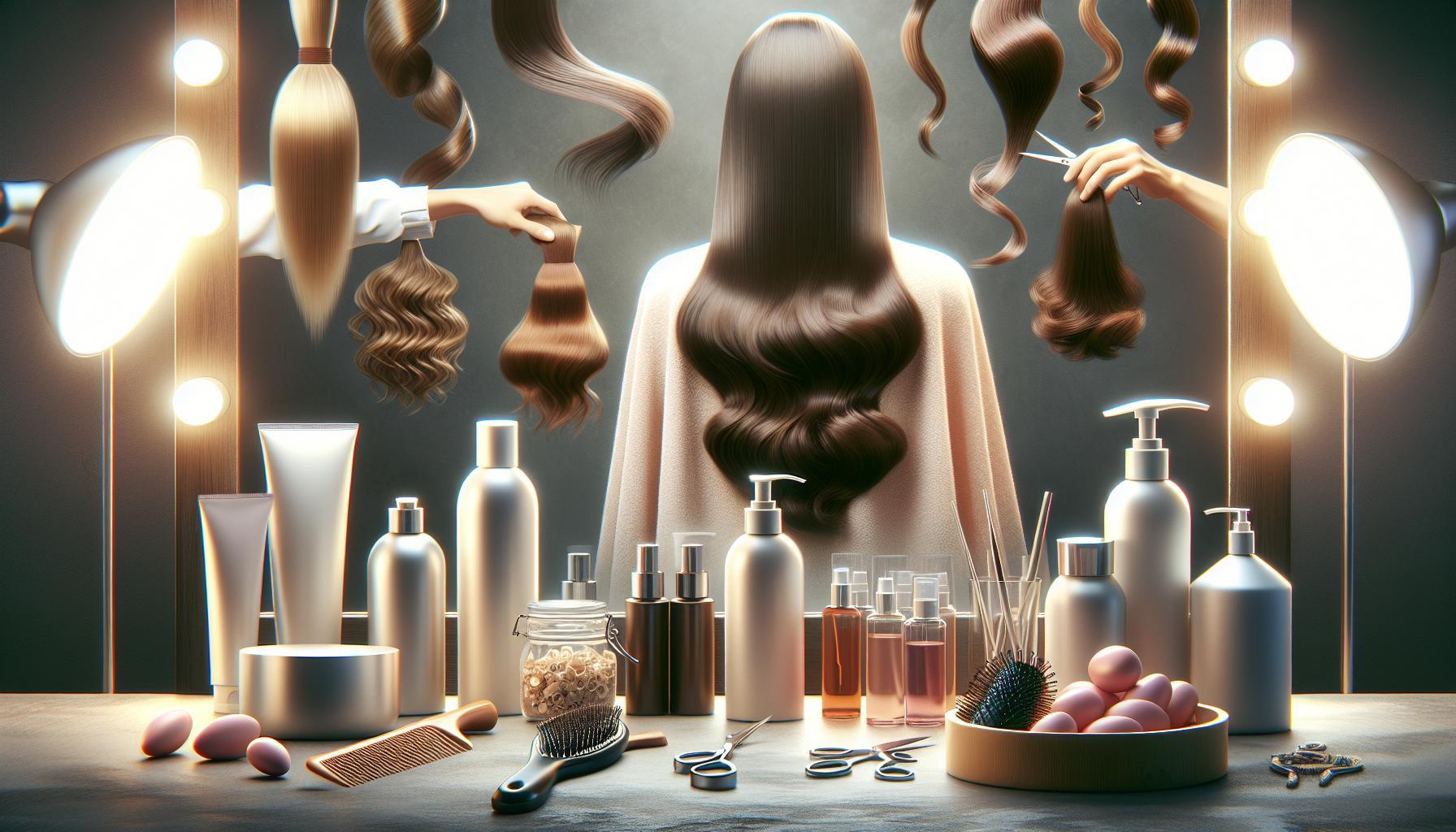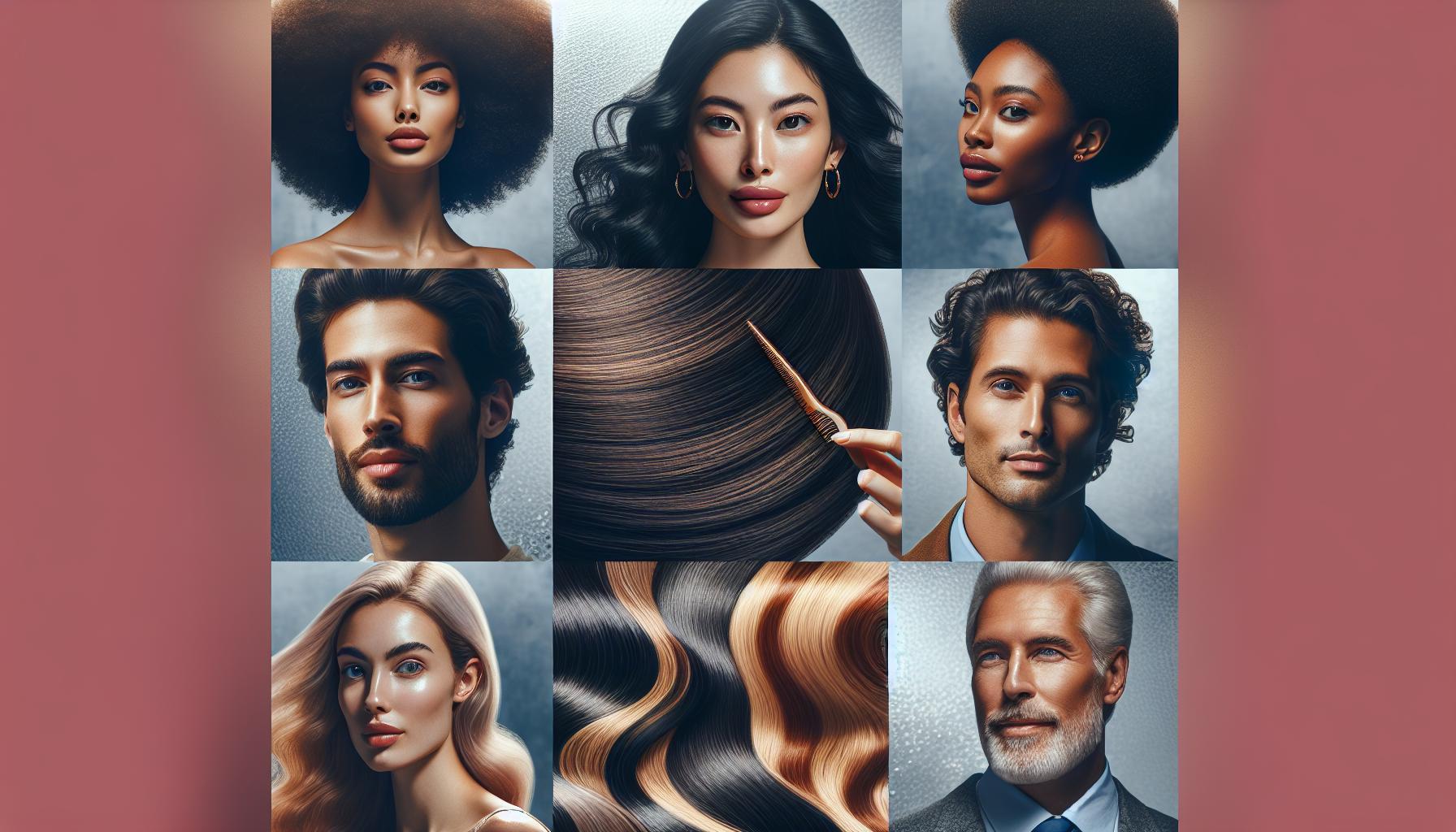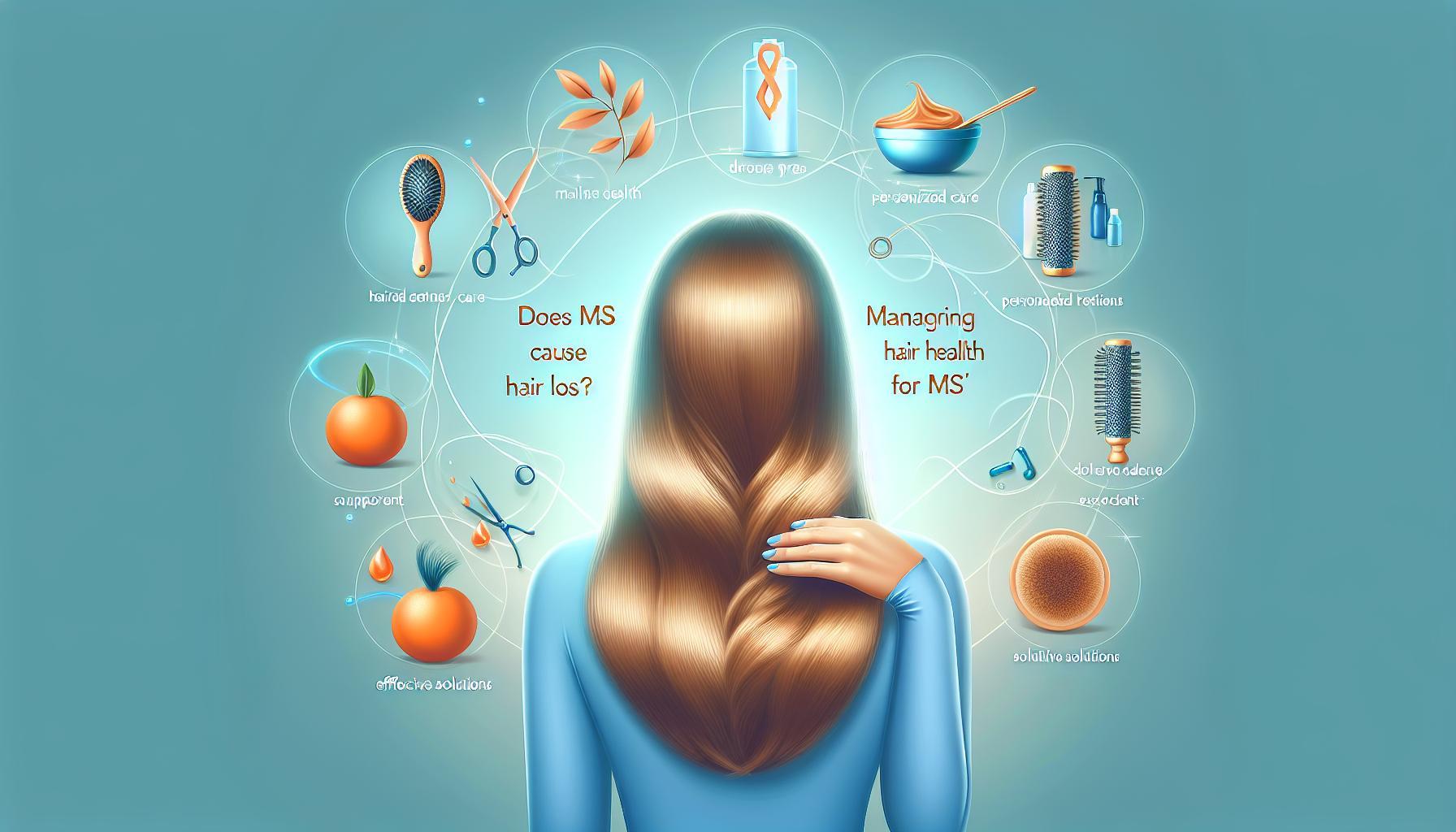As more peopel turn to hair styling products for that perfect look, concerns about hair loss have surfaced. It’s crucial to understand whether these products contribute to thinning hair or if they’re safe to use. This article explores the science behind hair care tools, helping you make informed choices that nurture your locks while keeping them healthy.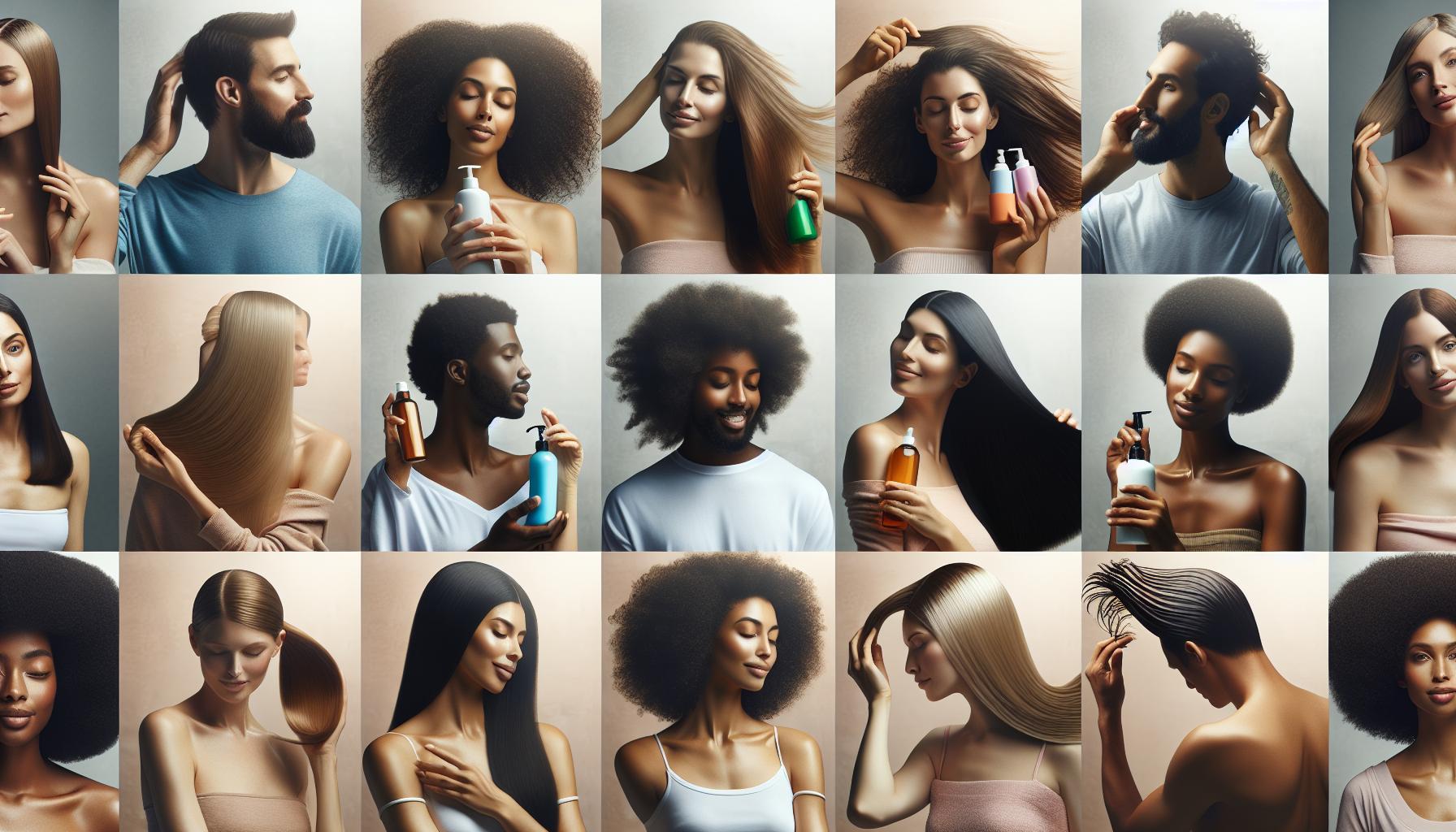
Contents
- Understanding the Relationship Between Hair Products and Hair Loss
- The Science Behind Hair Thinning: Why It Happens
- Key Ingredients to Watch Out For in hair Styling Products
- expert Insights: Hair Care Professionals Weigh In
- Safer alternatives: How to Style Without Compromising Your Hair
- the Role of Scalp Health in Preventing Hair Loss
- Tips for Building a Hair Care Routine That supports Growth
- Debunking Myths: What Really Causes Hair Damage and Loss
- Faq
- Do hair styling products cause hair loss?
- How do styling products affect hair health?
- Why does my hair feel weaker after using products?
- Can hair styling tools contribute to hair loss?
- Can I use hair styling products with thinning hair?
- What ingredients should I avoid in hair products?
- How often should I wash my hair if I use styling products?
- Insights and Conclusions
Understanding the Relationship Between Hair Products and Hair Loss
The impact of hair styling products on hair loss is a topic that has garnered critically important attention, igniting discussions among hairstylists, dermatologists, and consumers alike. While most people enjoy applying products like gels,sprays,and mousses to achieve their desired hairstyle,the long-term effects of frequent use warrant examination. Certain ingredients found in these products can lead to build-up on the scalp and hair, potentially disrupting the natural growth cycle of hair. This interference can lead to weakened strands, resulting in increased breakage and shedding over time.
Common Ingredients to Watch Out For
Not all styling products are created equal, and some contain components that may be detrimental to scalp health and hair vitality. Here are a few ingredients that consumers should be cautious about:
- Alcohols: Many styling products contain alcohol, which can dry out the hair and lead to brittleness.
- Silicones: While these can add shine and smoothness, they frequently enough cause build-up that can suffocate hair follicles and prevent new growth.
- Sulfates: Commonly found in shampoos, sulfates can strip the scalp of natural oils, resulting in dryness and irritation.
- Fragrances: Synthetic fragrances can cause allergic reactions and scalp sensitivity, further exacerbating hair loss.
Practical Steps to Mitigate Risks
Being mindful of the products you use is crucial for maintaining hair health. Here are several actionable steps that can definitely help minimize the risk associated with hair styling products:
- Read Labels: Familiarize yourself with ingredient lists and look for products that are free from harsh chemicals.
- Opt for Natural Alternatives: Consider using styling products formulated with natural ingredients, which are often gentler on the hair and scalp.
- Limit Product Build-Up: Regular cleansing with a clarifying shampoo can definitely help remove residue and maintain a clean scalp habitat.
- Rotate Products: give your hair breaks from heavy styling products to allow for recovery and growth.
Incorporating safe practices and choosing the right products can greatly contribute to healthier hair. Understanding the intricate relationship between hair products and hair loss allows individuals to make informed choices, ensuring that their styling routine enhances rather than undermines hair vitality. Engaging with this knowledge equips consumers to enjoy their styling products while promoting a healthy scalp environment and robust hair growth.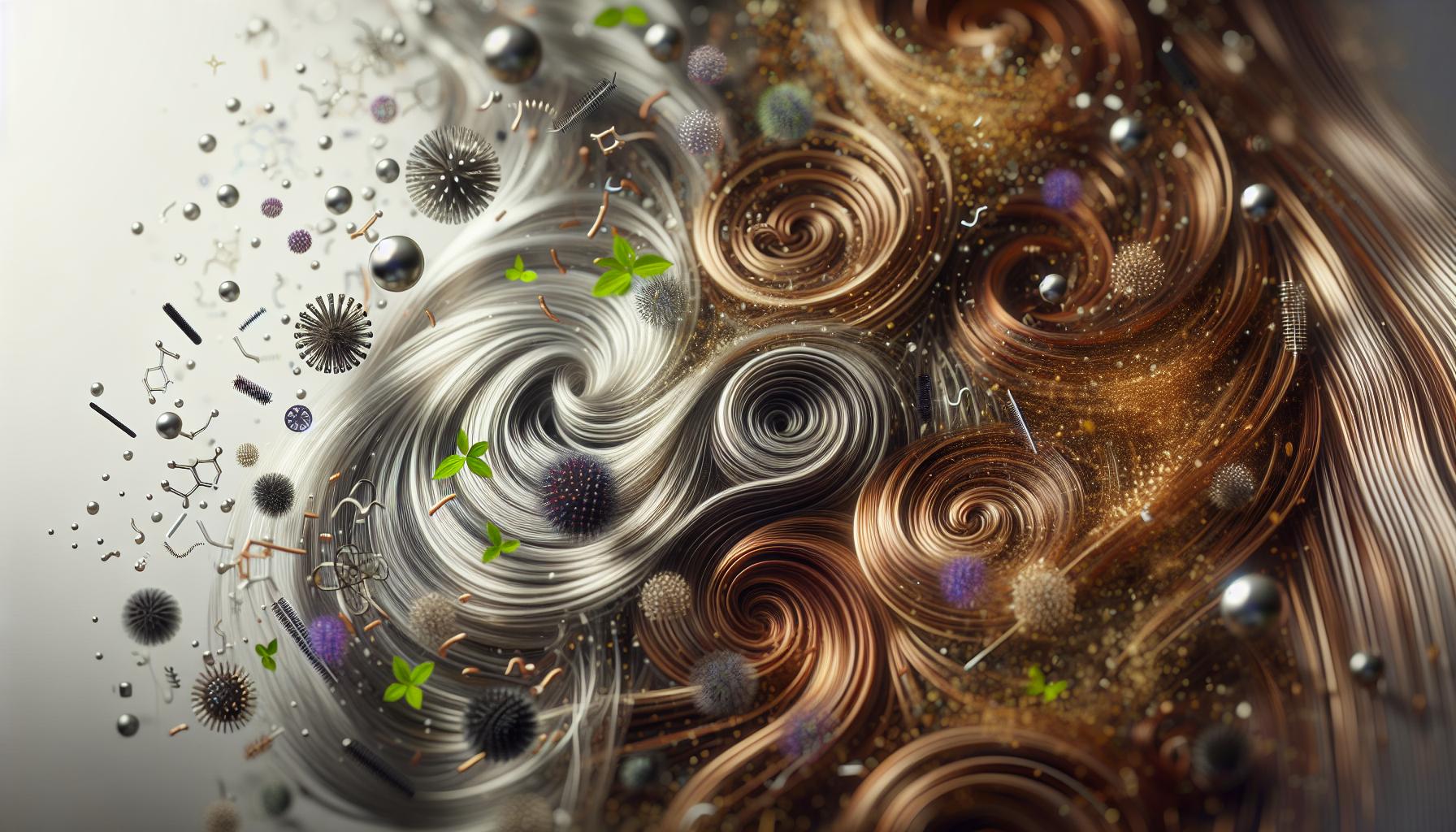
The Science Behind Hair Thinning: Why It Happens
Hair thinning is a common concern that affects many individuals at some point in their lives, and it can be attributed to a variety of factors, including genetic predisposition, hormonal changes, nutritional deficiencies, and even the use of certain hair styling products. Understanding the science behind hair thinning can demystify this frequent issue and highlight possible preventative measures.
One of the primary biological processes involved in hair thinning is the hair growth cycle, which consists of three phases: anagen (growth), catagen (transitional), and telogen (rest). Typically, around 85-90% of hair is in the anagen phase at any one time, while about 10-15% is in the telogen phase. Factors such as stress, hormonal fluctuations, and certain cosmetic products can alter this delicate balance, pushing more hairs into the telogen phase, which can lead to increased shedding. Studies show that prolonged exposure to harsh chemicals found in many styling products can weaken hair structure and contribute to breakage, exacerbating the effect of natural hair loss processes [[1]].
Common Causes of Hair Thinning
Understanding common external and internal contributors is crucial for managing hair thinning effectively:
- genetics: A primary factor in hereditary hair thinning is androgenetic alopecia, which can affect both men and women, frequently enough leading to gradual loss.
- Hormonal Changes: Conditions such as pregnancy, menopause, and thyroid disorders can impact hair density.
- Nutrition: Deficiencies in vitamins and minerals, particularly iron and vitamin D, can lead to thinning hair.
- Styling Products: Overuse of styling gels, sprays, and dyes can cause build-up and damage, leading to hair weakness and loss.
One proactive approach to mitigating hair thinning is to reassess your hair care routine. Opting for products with nourishing ingredients,avoiding excessive heat styling,and ensuring you’re consuming a balanced diet rich in essential vitamins can foster a healthier scalp environment. For individuals concerned about the potential effects of hair styling products, consulting a dermatologist can provide tailored advice and safe product recommendations.Recognizing the signs of hair thinning early on can empower you to take actionable steps to slow the process down. Whether it’s reconsidering product choices or seeking medical advice, understanding the science behind hair thinning and it’s causes can guide you toward maintaining thicker, healthier hair.
Key Ingredients to Watch Out For in hair Styling Products
Understanding the ingredients in hair styling products is crucial for anyone concerned about maintaining healthy hair and minimizing potential damage. Many styling products contain a range of chemicals that can affect hair health,and knowing which ingredients to look out for can empower you to make better choices. The question of whether hair styling products cause hair loss has become a common concern among consumers,prompting a closer examination of the ingredients that might contribute to such issues.
Key Ingredients to Consider
When evaluating hair styling products, it’s essential to identify harmful ingredients that may not only affect hair health but also contribute to hair loss in some cases. Common culprits include:
- Alcohols: Certain alcohols, particularly denatured alcohol, can be very drying and damaging to hair, leading to increased breakage and hair loss.
- Parabens: Though used as preservatives in many cosmetic products, parabens can disrupt hormonal balance, potentially affecting hair growth cycles.
- Sulfates: Found in many cleansing products, sulfates can strip hair of its natural oils, resulting in dryness and fragility.
- Formaldehyde: Often present in hair straightening treatments, this chemical can weaken hair structure, leading to damage over time.
As you explore your options, be vigilant about reading labels to spot these ingredients. You might be surprised at how many styling products contain these harmful additives.
Beneficial alternatives
Not all ingredients are harmful; several can actually support healthy hair. Opt for products with the following beneficial components:
- Coconut oil: Known for its moisturizing properties, coconut oil penetrates the hair shaft, reducing protein loss and enhancing shine.
- keratin: A protein that helps strengthen hair, adding resilience and elasticity, which can combat the adverse effects of styling.
- Biotin: Often touted as a hair growth supplement, biotin in topical applications can support overall hair health.
- Aloe vera: A natural moisturizer that soothes the scalp and promotes hydration,helping to prevent breakage.
Selecting products with beneficial ingredients can definitely help mitigate the risks associated with harmful additives while promoting healthier hair overall.
Making Informed Choices
To minimize potential damage from hair styling products, it’s vital to research and choose products wisely. here are a few actionable steps you can take:
| Action Steps | Description |
|---|---|
| Read Labels | Take time to review ingredient lists for harmful additives. |
| Spot Test | Perform a patch test with new products to check for adverse reactions. |
| Research Brands | Look for brands that prioritize clean,safe ingredients. |
| Consult Professionals | Consult with a dermatologist or a hairstylist for personalized advice. |
By being proactive and informed about the ingredients in your hair styling products, you can alleviate concerns related to hair health and avoid potential issues, contributing to a more sustainable hair care routine aligned with the principles outlined in the discussion about whether hair styling products cause hair loss.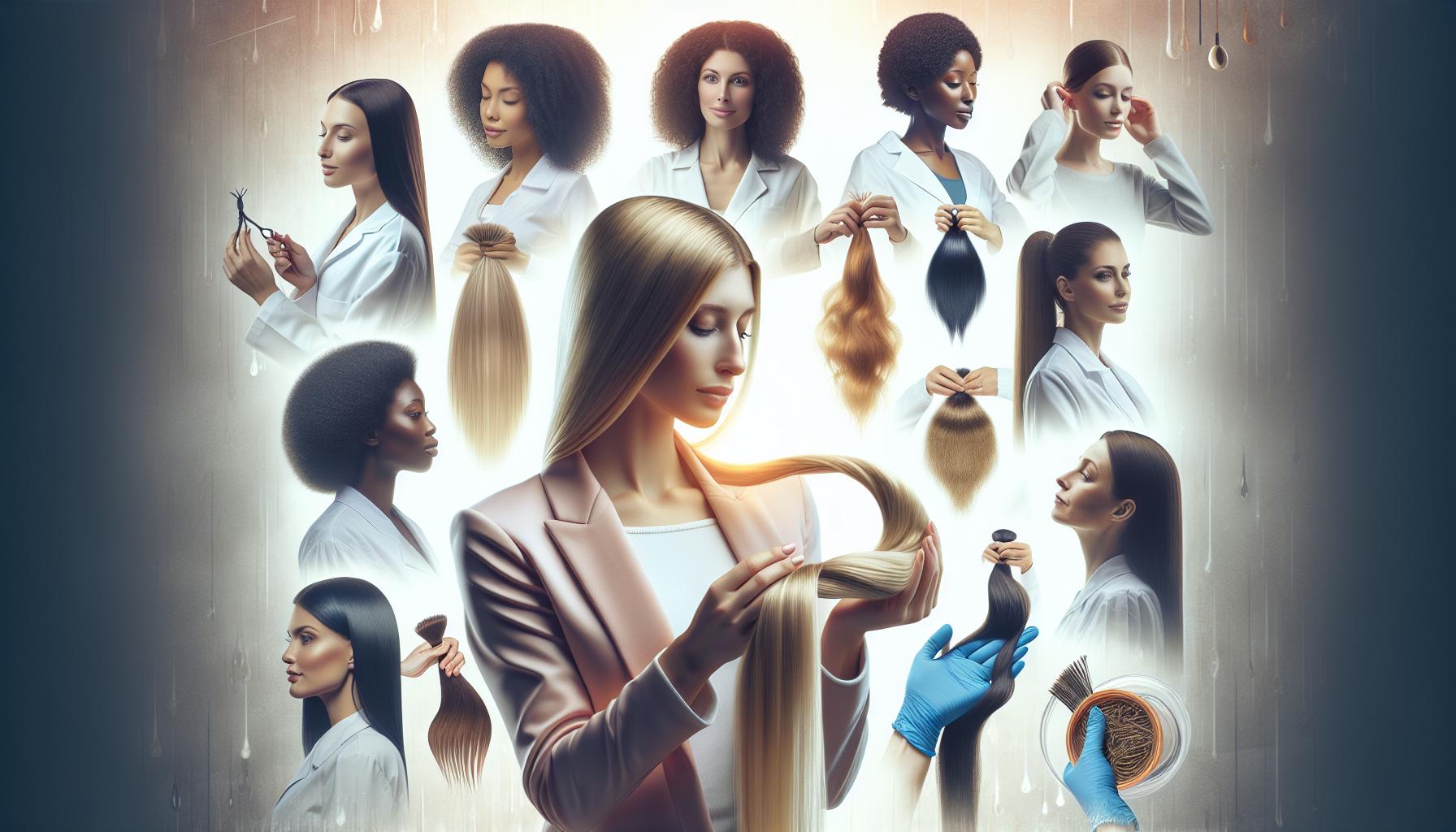
expert Insights: Hair Care Professionals Weigh In
The relationship between hair styling products and hair loss is a hot topic among hair care professionals. Many experts in the field emphasize the importance of understanding ingredient safety and choosing products wisely. Studies indicate that certain ingredients commonly found in styling products, such as high levels of alcohol, sulfates, and parabens, can contribute to hair damage and thinning, making it crucial for consumers to be informed about what they are applying to their hair and scalp.
Understanding Hair Product Ingredients
In the quest to prevent hair loss,professionals suggest scrutinizing labels and opting for products that promote healthy hair rather than those that simply enhance styling.Here are some key ingredients to consider:
- Avoid alcohol-based products: These can lead to dryness and brittleness.
- Look for natural oils: ingredients like argan oil, jojoba oil, and coconut oil can nourish and hydrate.
- Choose sulfate-free shampoos: Sulfates can strip natural oils,which are vital for maintaining hair health.
- Beware of heavy silicones: While they provide shine, heavy silicones can buildup, making hair look dull and lifeless over time.
Practical Tips from Hair care Experts
Hair professionals advise adopting a holistic approach to hair care that includes the following strategies:
- Limit Heat Styling: Excessive heat can weaken hair fibers. Consider air-drying or using heat tools sparingly.
- Regular Scalp Massages: Stimulating the scalp can promote blood circulation, potentially supporting hair growth.
- Balanced Diet Rich in Nutrients: Consuming foods high in vitamins such as biotin and omega-3 fatty acids can bolster hair health from the inside out.
- Test Products in Small Quantities: When trying new styling products, use them in moderation initially to assess their impact on your hair.
while many consumers wonder, “Do hair styling products cause hair loss?” it is indeed essential to prioritize product selection and general hair care practices. By being informed and proactive, individuals can enjoy styling without compromising their hair’s integrity or health.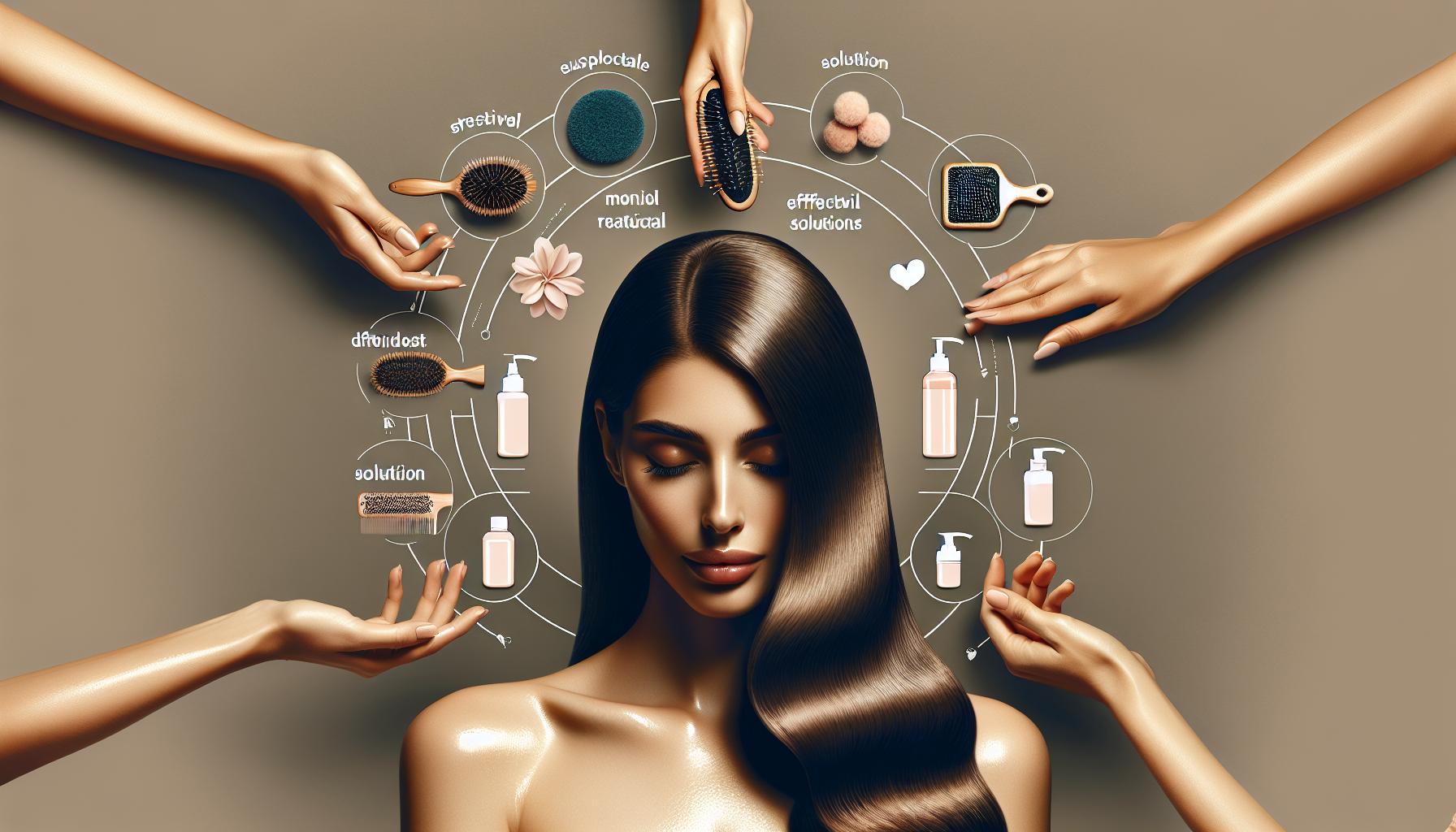
Safer alternatives: How to Style Without Compromising Your Hair
Innovative hair styling doesn’t have to equate to risking your hair health. With increasing awareness of the potential side effects associated with conventional hair products, many are questioning whether hair styling products cause hair loss. Luckily, there are effective, non-toxic alternatives that can definitely help you maintain your desired style while safeguarding your hair’s integrity.
One of the most effective ways to style your hair without compromising its health is by switching to products free from harmful chemicals such as sulfates and parabens. Brands like Innersense and Briogeo offer styling options that not only set your hair in place but are also formulated with natural, nourishing ingredients. Innersense provides a range of organic, cruelty-free, and vegan hair products, including styling gels and sprays made from ethically sourced plant-based ingredients. Similarly, Briogeo’s sulfate and paraben-free hairspray enriches your hair with botanical ingredients, promoting both style and shine without the risk factors frequently enough associated with conventional products.
When styling, consider the following safer alternatives to traditional products:
- Natural Mousse and Gels: Opt for organic formulations that enhance volume and hold without chemicals.
- Aloe Vera and Coconut oil: These can serve as natural styling aids that provide moisture and define curls.
- Herbal Sprays: Use sprays made from ingredients like chamomile or green tea to add light hold while nourishing your hair.
- Heat Protectants: If heat styling, choose non-toxic protectants that shield your hair from damage.
Along with choosing safe products, adopting healthier styling practices can make a significant difference. As an example, utilize tools with adjustable heat settings, employ air-drying techniques, or explore heatless styling methods like braiding for waves. Keeping your hair healthy involves not only the products you apply but also how you treat your hair daily. With the right approaches,you can certainly style your hair beautifully while minimizing the risks often associated with conventional hair care,as discussed in the context of the query surrounding hair loss and product safety.
By prioritizing non-toxic, sustainable options and mindful techniques, you can confidently create stunning looks without compromising on hair health.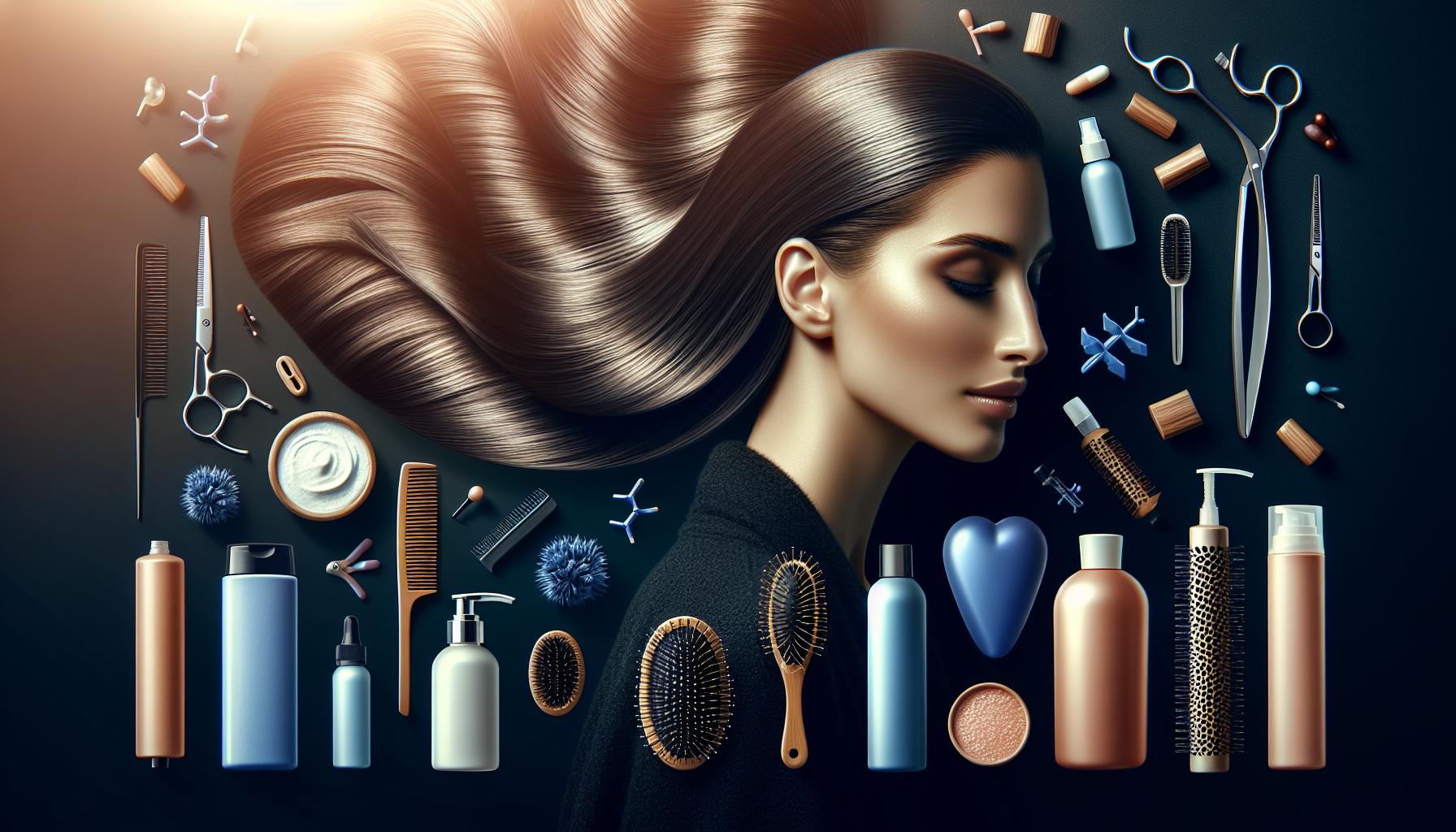
the Role of Scalp Health in Preventing Hair Loss
Maintaining a healthy scalp is crucial in the battle against hair loss, often overlooked in hair care discussions. A thriving scalp environment promotes healthy hair growth and minimizes the risk of hair loss, asserting the importance of scalp care in our daily routines. Factors such as excess oil,buildup from products,and environmental irritants can lead to inflammation and damaged hair follicles,potentially increasing the likelihood of shedding and thinning.
To keep your scalp in prime condition, consider implementing a few key practices:
- Regular Cleansing: Wash your hair regularly to remove product buildup, dirt, and excess sebum. A clean scalp is essential for healthy hair growth.
- Exfoliation: Just like your skin,your scalp benefits from exfoliation. Use a gentle scrub or exfoliating shampoo to encourage cell turnover and prevent clogged follicles.
- Moisturization: A healthy scalp should be well-hydrated. Look for lightweight, non-comedogenic oils like jojoba or argan oil that won’t clog pores.
- Balancing pH: use pH-balanced products to maintain the scalp’s natural acidity, which helps defend against harmful bacteria and fungi.
Environmental stressors and aggressive hair styling products can disrupt scalp health, sometimes leading to questions about their role in hair loss. It’s important to choose styling products wisely. Products containing harsh chemicals or alcohol can dry out the scalp and contribute to irritation frequently enough associated with hair loss. Opting for gentler, nourishing products will not only protect the scalp but also support overall hair vitality.
Recognizing signs of an unhealthy scalp is essential. Symptoms such as itchiness, redness, scaling, or excessive flaking indicate that your scalp may need immediate care. Incorporating gentle scalp massages into your hair care routine can enhance circulation, promote healthier hair follicles, and reduce stress, which itself is a contributor to hair loss.
Preventing hair loss demands a holistic approach that includes both scalp and hair health. By prioritizing scalp care, you not only pave the way for better hair growth but also reinforce the resilience of your strands against the fallout of styling products and environmental factors. As you explore the question of whether hair styling products cause hair loss, remember that nurturing your scalp plays a pivotal role in a complete hair care strategy.
Tips for Building a Hair Care Routine That supports Growth
Building a hair care routine that actively supports growth is essential for maintaining luscious locks and preventing potential damage that may arise from styling products. One common question many people have is whether hair styling products cause hair loss. While some products can indeed lead to adverse effects,understanding how to choose and use these products wisely can substantially improve both hair health and growth.
To start, focus on choosing high-quality styling products that are free from harsh chemicals such as sulfates, parabens, and alcohol. These ingredients can strip moisture from your hair,leading to dryness and brittleness.When shopping, look for products labeled as nourishing or hydrating.Additionally, it’s wise to perform a patch test before fully committing to a new product, as this can help prevent any allergic reactions or sensitivities.
Key Actions for Your routine
- Limit Heat Styling: Excessive heat can weaken hair strands. Whenever possible, air-dry your hair or use heat styling tools on the lowest setting.
- Incorporate Deep Conditioning: Use hair masks or deep conditioners weekly to replenish moisture and strengthen your hair.
- Scalp Care is Crucial: A healthy scalp promotes hair growth. Include a gentle exfoliating treatment or a scalp massage in your routine to enhance circulation.
- Mind Your Diet: A diet rich in vitamins (especially biotin, vitamin E, and zinc) and healthy fats can promote hair growth. Consider supplements if you’re not getting enough nutrients from your diet alone.
When selecting styling products,consider those with natural ingredients,as they are less likely to contribute to hair thinning. Many individuals find success with lightweight leave-in conditioners that provide moisture without weighing down their hair. Additionally, using a serum for frizz control can help manage styles without the need for heavy styling gels.
Understanding how to effectively build a hair care routine that supports growth while using hair styling products will not only keep your hair healthy but can also mitigate potential issues related to hair loss. Remember, the approach you take towards caring for your hair can make a significant difference in its overall vitality.
Debunking Myths: What Really Causes Hair Damage and Loss
Hair damage and loss is a widespread concern that affects many individuals,often leading to misconceptions about its causes. One of the prominent myths is that all hair styling products contribute to hair loss. Though, the reality is much more nuanced. while specific ingredients in some products can indeed exacerbate hair issues, many styling products do not directly cause hair loss. Rather, the methods of application and frequency of use tend to play a more significant role in hair health.
The Role of Ingredients
When evaluating the impact of hair styling products, it’s essential to consider their ingredients. Products laden with harsh chemicals, such as sulfates and parabens, can strip hair of its natural oils and lead to dryness and breakage. Conversely, those enriched with nourishing components like vitamins and proteins can actually support hair health. It’s crucial for consumers to read labels and opt for formulations that prioritize gentle, hair-friendly ingredients. For example, natural oils and botanical extracts can be beneficial in offering moisture and protection.
Application Techniques Matter
Poor application techniques can significantly contribute to hair damage. Tight hairstyles, frequent heat styling, and rough handling can cause stress on hair strands, leading to breakage. Rather,adopting safer styling practices can make a notable difference. Consider these tips:
- limit heat Exposure: Reduce the use of heat styling tools, and when necessary, apply a heat protectant.
- Avoid Tight Styles: Looser hairstyles can definitely help avoid undue stress on the hair shaft.
- Gentle Handling: use wide-tooth combs and avoid tugging at knots.
- Moisturize Regularly: keep hair hydrated with conditioners and hair masks to prevent brittleness.
| Product Type | Effects on hair |
|---|---|
| Styling Gels | May cause flaking and dry-out without proper moisturization. |
| Heat Protectants | help reduce heat damage when styling tools are used. |
| Hair Sprays | Can lead to residue buildup if not washed out properly. |
In essence, while the question of “Do hair styling products cause hair loss?” is complex, it goes beyond a simple yes or no. By choosing products wisely, adopting gentler styling habits, and recognizing the individual responses of our hair, we can dispel myths and better care for our locks.
Ultimately, embracing the science behind hair care and making informed choices can help maintain healthy hair, allowing everyone to enjoy their styling routines without unnecessary fear of damage.
Faq
Do hair styling products cause hair loss?
Hair styling products can contribute to hair loss,but they are not the sole cause. Certain products may contain harsh chemicals that damage hair follicles, leading to breakage and thinning.
Additionally, excessive use of styling products—like gels, sprays, and waxes—can clog hair follicles and irritate the scalp. It’s essential to choose products that are gentle and free from harmful ingredients. Redirecting focus to safer choices can help maintain healthy hair without the risk of loss.
How do styling products affect hair health?
Styling products can both positively and negatively affect hair health. While some products offer benefits like hold and shine, others may lead to buildup or scalp irritation.
Using products with silicones and alcohols can lead to dryness and reduce hair’s natural elasticity. For better hair health, select products with moisturizing ingredients and avoid over-styling, which can further stress the hair.
Why does my hair feel weaker after using products?
if your hair feels weaker after using styling products, it could be due to excessive buildup or harsh ingredients stripping hair of its natural oils.
This can result in a lack of moisture and overall fragility. To combat this, incorporate clarifying shampoos occasionally and follow up with deep conditioning treatments to restore moisture.
Can hair styling tools contribute to hair loss?
Yes, the misuse of hair styling tools, such as straighteners and curling irons, can contribute to hair loss by causing heat damage.
When hair is exposed to high temperatures regularly, it can become brittle, leading to breakage. Using protective sprays and adjusting your styling routine to reduce heat exposure can help minimize this risk.
Can I use hair styling products with thinning hair?
Yes, you can use hair styling products with thinning hair, but it’s crucial to choose those that promote volume without causing damage.
Lightweight mousses and volumizing sprays are beneficial as they can add body without weighing hair down. Look for products specifically designed for thinning hair to avoid exacerbating the problem.
What ingredients should I avoid in hair products?
When considering hair products, avoid ingredients like sulfates, parabens, and certain alcohols, which can dry out and damage hair, potentially leading to hair loss.
Look for products that contain nourishing ingredients such as natural oils and proteins that support hair strength and moisture, aiding in healthy hair maintenance.
How often should I wash my hair if I use styling products?
The frequency of hair washing varies based on hair type and the products used.If you regularly use styling products, washing 2-3 times a week is generally recommended.
This helps prevent buildup while allowing natural oils to keep your hair moisturized. Adjust as needed based on your hair’s unique condition and responsiveness to washing.
Insights and Conclusions
As we conclude our exploration of the potential impacts of hair styling products on hair loss, it’s essential to remember that knowledge is power when it comes to caring for your mane. While some products may contain harmful ingredients or deliver a temporary aesthetic boost at the expense of your hair’s health, there are safer, more effective alternatives available. Prioritizing gentle, hydrating formulations can help mitigate damage, and opting for alcohol-free options is a smart move for those with thinning hair.
Staying informed about the ingredients in your grooming products and their effects on scalp and hair health allows you to make choices that fit your unique needs. Remember, the goal is not just achieving great style, but also nurturing your hair from the roots. Don’t hesitate to experiment with different products until you find what works best for you, and consider consulting with professionals if you’re unsure.
Your journey toward understanding and caring for your hair doesn’t end here. Explore further into choice products, styling techniques, and emerging research in hair care to expand your knowledge and enhance your hair health. Embrace your hair challenges with confidence, knowing you have the tools and information to make informed choices for a healthier, happier hair journey.

